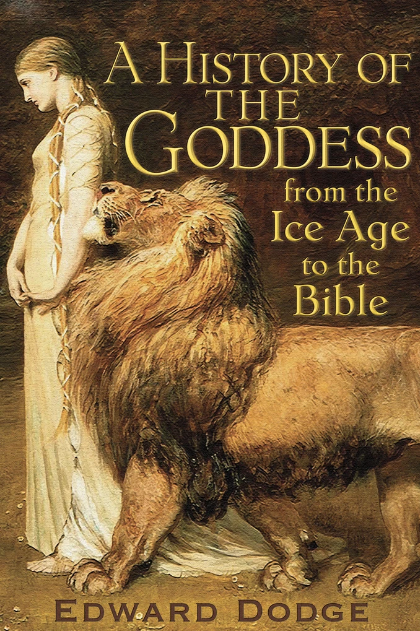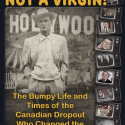The Journey Podcast 35. Ed Dodge: Does God Have a Wife?
Author Edward Dodge and publisher Kris Millegan discuss Ed’s book, A HISTORY OF THE GODDESS: From the Ice Age to the Bible. Ed’s premise: the heavenly father and the earthly mother are the original gods. Their traditions can be traced all the way back in time. The early Hebrews were pagan; they believed that God had a wife. The rise of monotheism shoved her aside. She got absorbed into the image of the Virgin Mary, the “mother” of God. All the witches, whores, homosexuals, plant-drug folks and indigenous people that have been being persecuted for the last two thousand years are all, one way or the other, followers of the goddess.

E: Cannabis has been around forever. Why does our culture, which embraces alcohol and tobacco, hate marijuana, which causes no death and no disease and just makes you feel good? I wanted to understand “why?” I realized that it was all tied up in religion.
K: In the thirties, they didn’t really make pot illegal. They put a hundred dollar tax per ounce. When Leary got busted going across the border to Mexico, that’s when they started the federal laws against pot. These guys chose pot because anything you make from oil, you can make from cannabis. Cannabis was one of the largest competitors to oil.
E: It’s pretty clear from scholarship that the early Hebrews were polytheistic. I called it monolotry. They were worshipping an idol of the one god they focused on more than the others. But they were basically just pagans.
K: You talk about that part of the change to monotheism was to stop the child sacrificing.
E: The Phoenician, Baal-worshipping culture really did do child sacrifice. The Canaanites of the Bible are also the Phoenicians of Lebanon. The introduction of monotheism is a reformation. It’s a new religious idea that’s being instituted and they’re rebelling against the older religious order. They were particularly bloody gods. So there was an appetite in the community for some new religious ideas to come along. Public sex rituals, too. Agricultural sex rituals, where sex makes the flowers grow. I think that’s part of the religious reformations going on. But the Hebrews go too far because they get rid of the feminine divine altogether. They deny that the mother goddess even exists as a concept, and it’s just the heavenly father alone.
My basic premise is that the heavenly father and the earthly mother are the original gods, and we can trace their traditions all the way through history, all the way back in time. The names change. They mythologies change, but there’s always an earthly mother and a heavenly father, and they’re the parents of all the other gods. But when the Hebrews come along with monotheism, they say, “It’s going to be the heavenly father alone and we get rid of everybody else.” The earthly mother, she doesn’t get killed off, though. She’s still around. She just gets beaten up and locked in the closet and shoved out of the way. But all the witches and whores and homosexuals and plant-drug folks that have been being persecuted for the last two thousand years are all, one way or the other, followers of the goddess. And all the indigenous people, too, who all believe in the earthly mother, they’ve all been persecuted by Christians, too.
K: There’s all this information coming out now finding cannabis being burnt in ancient Hebrew temples. How did it go away?
E: It never went away. You just gotta track who’s in charge. The Phoenicians, the Persians, then the Greeks come in and all the gods are being syncretized with the Greeks, then the Romans come in and so Baal and Astar and all the goddesses of the Bible, they’ve all been absorbed into the Roman pantheon, as Jupiter and Venus, and they’re still there.
I could make a theological argument now for “the wife of God,” that there is in fact a mate to the heavenly father. The Virgin Mary syncretizes all these old symbols, collects all the iconography of the earlier pagan goddesses, just absorbs it all in.
K: What effect do you think this understanding is going to have?
E: We’re living in history right now. Very dramatic times. I think we’re in a religious war but people just don’t know it yet. I think the whole 21st Century is all going to be driven by wars for religion. Christian nationalism, Islamic jihad. What I’ve come to discover about religion is that it’s the baseline of how a culture organizes itself. It provides the basic set of organizing principles. Because we live in a fundamentally mysterious world. There are fundamental mysteries out there. “How was the universe created? What’s going to happen after we die? What’s our purpose in life?” We don’t have answers to these questions. Nobody ever has. But we have this existential angst that we need an answer. And so we just create an answer. They’re all fiction. Every single one of them is a fiction. But it’s a useful fiction. It helps us collectively agree on something, like “We all agree on this,” and then we can all move forward together, and we have some set of beliefs that are speaking to a mystery.









